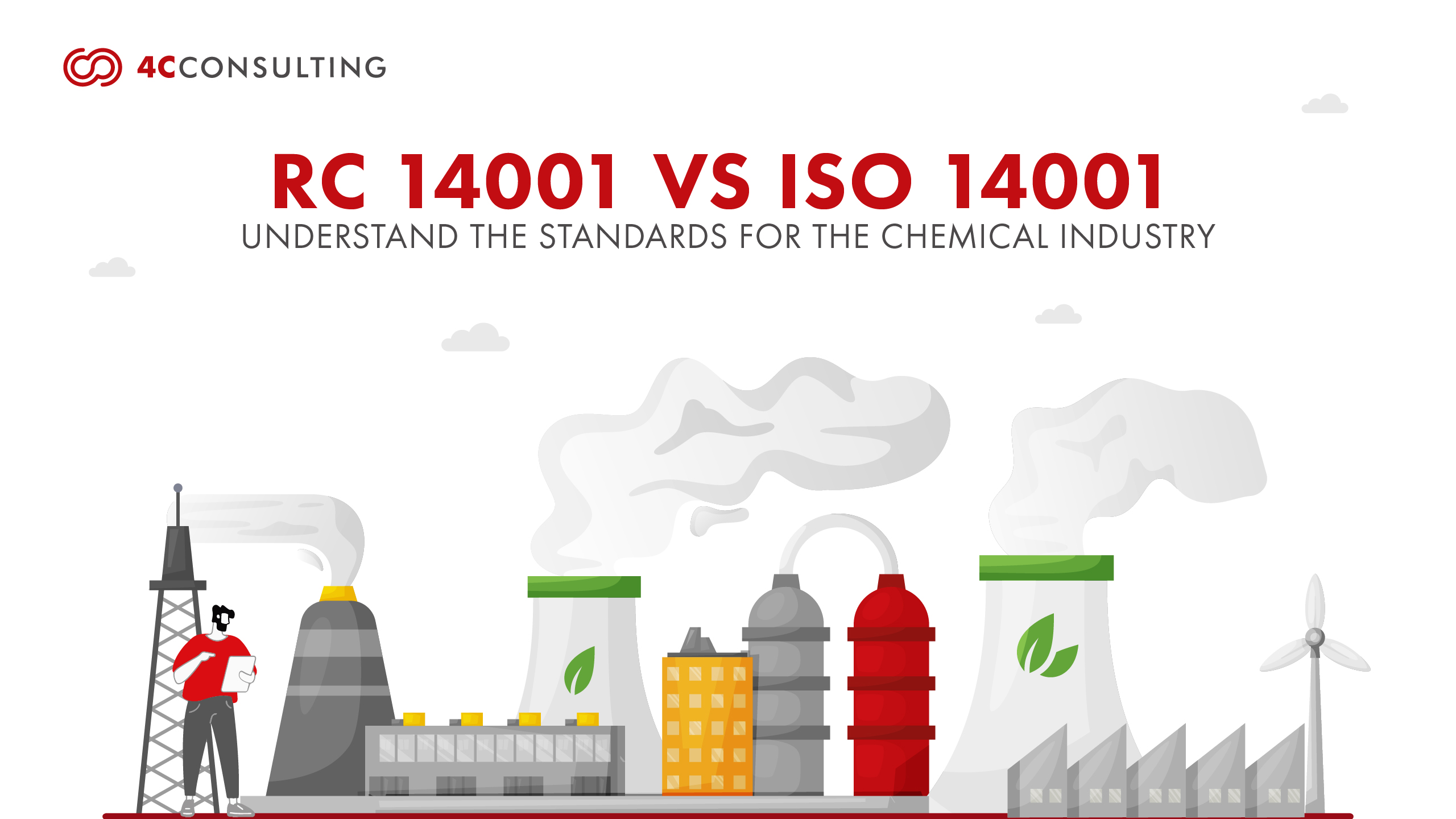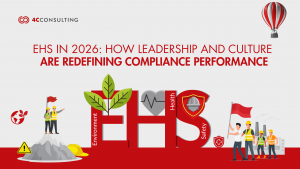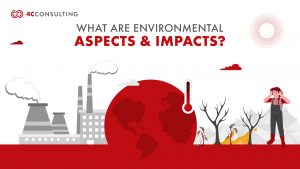RC 14001 VS ISO 14001: UNDERSTANDING THE STANDARDS FOR CHEMICAL INDUSTRY
22nd Aug, 2025The chemical industry operates under some of the strictest global expectations from minimizing emissions and hazardous waste to ensuring worker safety and community health. Regulatory authorities, international buyers and local communities are all demanding greater transparency and accountability for organizations this means that environmental compliance is no longer optional, it is a business critical requirement that directly influences market access, reputation and long-term growth.
This is where Environmental Management System (EMS) certifications play a defining role. They go beyond just documents compliance to create structured frameworks that reduce risks build stakeholder trust and prepare companies for global supply chain demands. Among the most relevant certifications for chemical companies are:
- ISO 14001 Certification: The globally recognized EMS standard that enables organizations to manage environmental responsibilities systematically.
- RC 14001 Certification: A chemical industry specific standard that integrates ISO 14001 with the Responsible Care® initiative strengthening commitments to health, safety, environment and security.
Both standards aim to enhance environmental stewardship, but their scope, focus and business value differ. In this blog, we will break down the difference between ISO 14001 and RC 14001, analyze their unique benefits for the chemical sector and guide you in choosing the right certification to align with your compliance obligations and strategic objectives.
.
WHAT IS ISO 14001?
ISO 14001 is the world’s most widely adopted Environmental Management System (EMS) certification. It provides organizations with a structured framework to identify environmental risks, manage compliance obligations and continually improve sustainability performance.
The purpose of ISO 14001 certification standards is not only to comply with environmental laws but also to embed environmental responsibility into core business strategy. For chemical companies, this means proactively managing emissions, waste and resource use while ensuring operations meet both regulatory and global buyer expectations.
.
Strengthen Compliance in Chemicals with the Right Standard.
.
BENEFITS OF ISO 14001:
- Regulatory Compliance: Ensures organizations meet environmental laws and regulations, reducing the risk of fines and legal action.
- Global Recognition: ISO 14001 certification is internationally accepted, making it easier to access new markets and satisfy global clients.
- Risk Reduction: Proactively identifies and manages environmental risks such as emissions, waste and resource use.
- Operational Efficiency: Streamlined EMS processes lower energy consumption, reduce waste and optimize resource utilization.
- Stronger Market Position: Demonstrates a company’s commitment to sustainability, building trust with stakeholders and improving brand reputation.
By implementing ISO 14001, chemical companies gain credibility in domestic and international markets, enhance risk management and position themselves as sustainable suppliers in an increasingly compliance-driven industry.
.
WHAT IS RC 14001?
The RC 14001 certification standards is a specialized standard developed for the chemical industry. It combines the requirements of ISO 14001 certification with the Responsible Care® initiative a global program established by the American Chemistry Council (ACC) to promote safe, responsible and sustainable chemical manufacturing.
.
BENEFITS OF RC 14001:
- Integrated Approach: Combines ISO 14001’s EMS requirements with the Responsible Care® principles, covering environment, health, safety and security.
- Industry Credibility: Specifically recognized within the chemical industry, strengthening reputation with regulators, communities and supply chain partners.
- Community & Stakeholder Trust: Goes beyond compliance to address community health, transparency and social responsibility critical for chemical companies.
- Workforce Engagement: Embeds safety and environmental responsibility across all employee levels, enhancing awareness and accountability.
- Competitive Advantage: Demonstrates leadership in responsible chemical management, helping win contracts from global buyers demanding higher ESG standards.
Through RC 14001 training and implementation, organizations demonstrate that they are not only managing environmental risks but also actively protecting people, communities and supply chains from broader chemical industry hazards. For global buyers and regulators, RC 14001 signals a higher benchmark of responsibility, making it a differentiator for chemical companies competing in international markets.
.
DIFFERENCE BETWEEN ISO 14001 AND RC 14001 CERTIFICATION
| Aspect | ISO 14001 Certification | RC 14001 Certification |
| Standard Definition | Global Environmental Management System (EMS) standard applicable to all industries. | Chemical-industry specific framework combining ISO 14001 EMS with Responsible Care® principles. |
| Industry Relevance | Adopted by manufacturing, pharma, automotive, food, IT, construction and service sectors. | Tailored to chemical, petrochemical, specialty chemical and allied industries (plastics, polymers, dyes). |
| Scope & Coverage | Focuses on environmental aspects: emissions, waste, resource efficiency, pollution prevention. | Covers EMS + occupational health, process safety, community health, supply chain security and product stewardship. |
| Core Requirements | Requires environmental policy, aspect-impact analysis, legal compliance, monitoring, audits, continual improvement. | Includes all ISO 14001 requirements plus Responsible Care codes: employee safety, community engagement, security protocols. |
| Compliance & Regulations | Ensures compliance with environmental laws, national pollution control norms and international standards. Example: ISO 14001-certified pharma company reduces wastewater discharge as per PCB norms. | Goes beyond environment—addresses health, safety, security and social accountability. Example: RC 14001-certified chemical plant conducts community emergency drills and discloses safety data to regulators. |
| Market Acceptance | Globally recognized baseline standard; often required in supplier contracts across industries. Example: Auto OEMs in Europe require ISO 14001 from Tier-1 suppliers. | Strong preference in chemical supply chains linked to ACC, CEFIC and global Responsible Care programs. Example: Multinational chemical buyers demand RC 14001 for long-term sourcing contracts. |
| Stakeholder Impact | Builds credibility with regulators, customers and investors by proving environmental responsibility. | Enhances trust with local communities, NGOs, regulators and global buyers by showing commitment to responsible chemical management. |
| Implementation Complexity | Moderate: requires EMS framework, aspect/impact registers, compliance registers, audits and continual improvement cycles. | Higher: needs EMS implementation plus integration of safety, community health and Responsible Care culture across all levels. |
| Audit & Certification | Audited by accredited ISO certification bodies (e.g., TÜV, BSI, DNV, NABCB). | Audited by same bodies but with additional checks on Responsible Care codes, safety |
.
WHICH STANDARD SHOULD CHEMICAL COMPANIES CHOOSE?
For many chemical companies, ISO 14001 certification is often the first step toward building a strong Environmental Management System (EMS). It ensures compliance with environmental regulations, provides a globally recognized framework and satisfies customer or regulatory requirements where environmental performance alone is the focus. For organizations seeking a clear, structured approach to identify, monitor and reduce environmental impacts ISO 14001 is usually sufficient and widely accepted across markets.
Companies looking to go beyond compliance and demonstrate leadership in environment, health, safety and community responsibility may find greater value in RC 14001 certification. By combining certifications, strengthens credibility within the chemical industry, aligns with Responsible Care commitments and enhances trust with regulators, customers and communities. While ISO 14001 secures compliance, RC 14001 positions chemical companies as industry leaders in sustainable and responsible operations, particularly when supply chains or global buyers emphasize Responsible Care alignment.
Both empower chemical companies to strengthen environmental responsibility, but the choice depends on business priorities. ISO 14001 offers a globally recognized framework to ensure compliance and improve sustainability performance across markets, while RC 14001 goes further by integrating Responsible Care® principles that address health, safety, community and security making it especially valuable for companies aiming to demonstrate leadership in responsible chemical management. By selecting the right certification, organizations not only safeguard compliance but also gain trust, competitive advantage and long-term growth in an increasingly sustainability-driven industry.
.
HOW WE CAN HELP YOU IMPLEMENT THE RIGHT STANDARD
At 4C Consulting, we guide chemical companies in choosing between ISO 14001 and RC 14001, ensuring your Environmental Management System (EMS) aligns with regulatory requirements and industry expectations. With over 15+ years of expertise and 10,000+ hours of training, our consultants provide tailored support for both standards. For ISO 14001, we help organizations build globally recognized EMS frameworks that reduce risks, improve sustainability and enhance market access. For RC 14001, we assist chemical manufacturers in integrating Responsible Care® principles, strengthening commitments to safety, community health and stakeholder trust. With a proven track record and customized solutions, we deliver end-to-end support from gap analysis to final certification. Contact Team 4C today to get started.

Frequently Asked Questions:
It depends on business goals. ISO 14001 is ideal for meeting global environmental compliance, while RC 14001 offers a more comprehensive framework that includes health, safety, community and security making it better suited for companies aiming to demonstrate leadership in responsible chemical management.
Yes. Since RC 14001 integrates ISO 14001 requirements, companies certified to ISO 14001 can upgrade by aligning with Responsible Care® principles, expanding their EMS to cover safety, security and community engagement.
Responsible Care® is the foundation of RC 14001. It adds industry-specific codes for safety, community health, security and product stewardship, ensuring chemical companies go beyond compliance to demonstrate accountability and responsible operations.
While ISO 14001 builds credibility in environmental compliance, RC 14001 strengthens trust further by requiring community engagement, emergency preparedness and transparent communication with regulators, NGOs and local stakeholders.
Challenges include integrating safety and community programs into the EMS, ensuring employee participation, managing higher documentation requirements and demonstrating evidence of Responsible Care® practices during audits.
Yes. Unlike ISO 14001, which focuses primarily on environmental aspects, RC 14001 includes occupational health, process safety and security as part of its Responsible Care® framework.
Yes. While ISO 14001 remains widely accepted, many multinational chemical buyers and regulators prefer RC 14001 because it demonstrates a higher commitment to ESG, community safety and responsible chemical management.
RC 14001 is suitable for companies of all sizes. With proper consulting support, even small and mid-sized chemical manufacturers can implement RC 14001 to enhance compliance, build credibility and access global supply chains.






